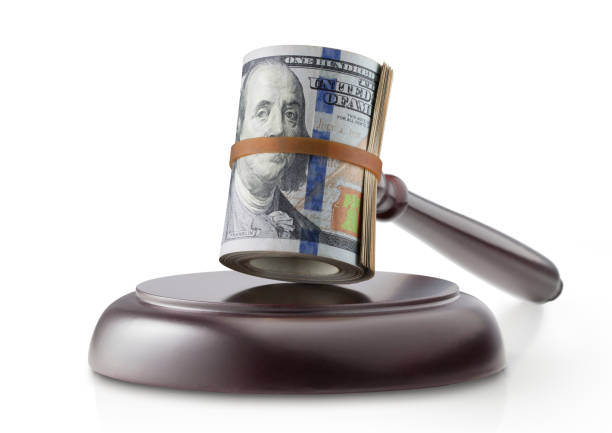When individuals experience physical injuries due to accidents or negligence, the law compensates for their suffering. However, personal injury cases often extend beyond physical pain and suffering. They can also encompass emotional distress, which may be just as significant.
The following article will explain how courts evaluate and determine monetary compensation for emotional distress in personal injury cases. While it’s impossible to alleviate emotional pain completely, this compensation helps victims find closure and heal.
1. Recognizing Emotional Distress in Personal Injury Cases
In personal injury cases, emotional distress refers to the psychological suffering and mental anguish a victim experiences as a result of the incident. It can manifest in various forms. These forms include anxiety, depression, and post-traumatic stress disorder (PTSD).
Sometimes, a general decline in emotional well-being occurs as well. Emotional distress is a valid claim as physical injury in personal injury cases, and the law acknowledges it as a compensable element.
2. Proving Emotional Distress in Court
To successfully claim compensation for emotional distress, a plaintiff must provide evidence demonstrating the incident’s impact on their mental and emotional well-being. Proving emotional distress can be challenging, but luckily, Whitley Law Firm may be able to help.
The following are needed for a favorable outcome in a personal injury case:
- Medical records: Medical professionals, such as psychologists or psychiatrists, can provide expert testimony about the plaintiff’s emotional state. They can diagnose conditions related to emotional distress.
- Witness testimonies: Statements from friends, family members, or coworkers who have observed changes in the plaintiff’s behavior and emotional state can provide valuable evidence.
- Plaintiff’s testimony: The plaintiff’s own account of their emotional distress is crucial. They can describe the impact of the incident on their daily life, relationships, and overall well-being.
- Documentation: It’s smart to keep a journal or diary that records emotional struggles, symptoms, or changes in daily life. It can serve as compelling evidence.
3. Monetary Value Assessment for Emotional Distress
Courts recognize the importance of compensating victims for emotional distress. However, determining a fair and just amount can be complex. The assessment typically involves the following factors:
- Severity of emotional distress: Courts consider the gravity and extent of emotional suffering. Severe cases, such as those involving PTSD or long-term depression, often result in higher compensation.
- Medical expenses: Therapy, counseling, or psychiatric treatment costs may be factored into the compensation amount.
- Impact on daily life: If the emotional distress significantly affects the victim’s ability to work, maintain relationships, or enjoy life, it can increase the compensation amount.
- Duration of distress: The length of time the victim experiences emotional suffering is taken into account. Chronic emotional distress often leads to greater compensation.
- Expert testimonies: Expert witnesses, such as psychologists, can provide insight into the lasting impact of emotional distress. It can influence the compensation amount.
4. No-Physical Injury Cases
It’s important to note that personal injury cases don’t always involve physical harm. Some cases are centered solely around emotional distress. Specifically, cases of defamation, false imprisonment, or intentional infliction of emotional distress. In such instances, the court must evaluate the emotional harm. Then, they will determine compensation accordingly.
5. Caps on Compensation for Emotional Distress
In some jurisdictions, there are limitations or caps on the amount of compensation a plaintiff can receive for emotional distress. These caps are intended to prevent excessive payouts. They often vary based on the type of case, such as medical malpractice or discrimination. Knowing the applicable laws in your jurisdiction is crucial. Especially when pursuing a personal injury case involving emotional distress.
6. Intentional vs. Negligent Infliction of Emotional Distress
Courts distinguish between intentional infliction of emotional distress and negligent infliction of emotional distress.
- Intentional infliction: In cases where the emotional distress resulted from deliberate, malicious, or outrageous conduct, the compensation awarded may be higher. It is because the actions were purposeful.
- Negligent infliction: In cases where the emotional distress resulted from someone’s negligence or carelessness, the compensation may be lower but still available. But, it’s only as long as the emotional distress is severe and foreseeable.
7. Personal Injury Attorneys and Emotional Distress Cases
Personal injury attorneys play a crucial role in advocating for their clients. Especially those who have suffered emotional distress. They help gather evidence, secure expert witnesses, and build a compelling case for fair compensation. Attorneys are familiar with the legal nuances surrounding emotional distress claims. Meaning they can navigate the complexities of these cases.
8. Settlements vs. Trials
In personal injury cases involving emotional distress, plaintiffs may choose to settle with the defendant out of court. Settlements can be advantageous as they provide a quicker resolution and avoid the uncertainties of a trial. However, the compensation amount in settlements is usually negotiated between both parties and may be lower than what a court might award.
Conversely, some plaintiffs opt for a trial to ensure that they receive fair compensation. Trials are generally lengthier but provide an opportunity for a judge or jury to assess the case. They will then determine an appropriate compensation amount.
9. Emotional Distress and the Legal System
The legal system recognizes the profound impact of emotional distress on individuals’ lives. Additionally, they acknowledge the need for compensation in personal injury cases. Courts carefully evaluate the evidence presented. From there, they consider various factors to determine a fair monetary value for emotional anguish.
Conclusion
In personal injury cases, emotional distress is a legitimate and compensable element. Victims have the right to seek fair compensation for their psychological suffering. resulting from another party’s negligence or wrongdoing. Understanding the process of evaluating emotional distress in personal injury cases is essential.




